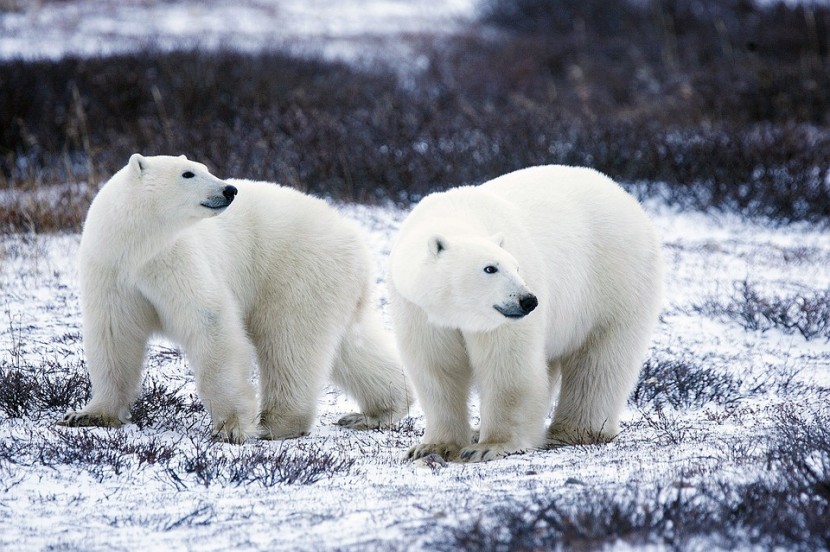
Polar bear cannibalism in the Arctic is increasing, according to a Russian expert. Ilya Mordvintsev, polar bear expert and senior researcher at Moscow's Severtsov Institute of Problems of Ecology and Evolution, said that cases of polar bears cannibalizing each other are rising. "Cases of cannibalism among polar bears are a long-established fact, but we're worried that such cases used to be found rarely while now they are recorded quite often."
While speaking in the northwestern city of Saint Petersburg, Mordvintsev suggested that the behavior could be due to a lack of food options.
The sources were reportedly ice melt as well as human activity that may be contributing to polar bears' food problems.
Seasons wherein large males attack females with cubs when there is not enough food are becoming a more regular occurrence. An example gained widespread attention when members of a 2017 National Geographic expedition captured it in video footage.
Mordvintsev said increased development of the Yamal Peninsula and the Gulf of Ob by oil and gas companies are factors for the depletion of polar bear hunting grounds.
Rising temperatures in the Arctic and melting ice cover have also led polar bears to further south in search of food.
The increase in the frequency of cannibalism incidents may also be due in part to an increase in human activity in the Arctic who are present to witness the horrific events.
While cannibalism is a natural behavior among wild animals in the Arctic, the scientists noted that this becoming a more common occurrence that could jeopardize polar bear populations.
According to Mordvintsev, "During some seasons there is insufficient nutrition, and large males attack females with cubs, and maybe there weren't so many people in the Arctic to record so many cases of cannibalism."
The climate crisis is heating Russia 2.5 times faster than the rest of the world. Sea ice coverage in the Russian Arctic at the climax of summer has decreased by 40 percent, said scientist Vladimir Sokolov.
More people are working in the Arctic and reporting such behavior. Scientists are not the only ones gathering information, but also the growing number of oil workers and defense ministry employees.
The development in the Gulf of Ob and the passage from that area to the Barents Sea has become a more popular route for ships carrying liquefied natural gas. Therefore, increased human activity has affected the lives of polar bears.
This year, polar bears might have been hurt by unusually warm weather on Spitsbergen Island in Norway's Svalbard archipelago.
Polar bears come ashore when the ice melts then wait for the ice to freeze again so they can go hunting again. However, with the receding ice, they have less access to seals.
Eventually, polar bears might be unable to hunt on sea ice and will be limited to shore areas and high-latitude archipelagos.
Related article: Climate Change And Polar Bears: Animals Not Able To Adapt To Lack Of Food Caused By Sea Ice Loss
© 2026 HNGN, All rights reserved. Do not reproduce without permission.








